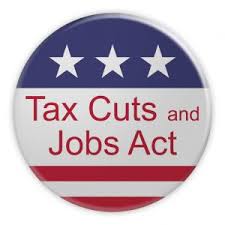In IR-2020-130 the Internal Revenue Service Office of Chief Counsel announced a time-limited settlement offer to certain taxpayers with pending docketed Tax Court cases involving syndicated conservation easement transactions. Taxpayers eligible for this offer will be notified by letter with the applicable terms.
The settlement offer would bring finality to these taxpayers with respect to the syndicated conservation easement issues in their docketed U.S. Tax Court cases.
The Settlement Requires A Concession of The Income Tax Benefits Claimed By The Taxpayer and Imposes Penalties.
“The IRS will continue to actively identify, audit and litigate these syndicated conservation easement deals as part of its vigorous and relentless effort to combat abusive transactions,” said IRS Commissioner Chuck Rettig. “These abusive transactions undermine the public's trust in private land conservation and defraud the government of revenue. Ending these abusive schemes remains a top priority for the IRS."
The IRS recognizes the important role of conservation easement deductions in incentivizing land preservation for future generations. However, abusive syndicated conservation easement transactions have been of concern to the IRS for several years.
In Notice 2017-10, the IRS identified certain syndicated conservation easement transactions as tax avoidance transactions and provided that such transactions (and substantially similar transactions) are listed transactions for purposes of Treasury Regulation § 1.6011-4(b)(2) and §§ 6111 and 6112 of the Internal Revenue Code. Also, in 2019, the IRS added syndicated conservation easement transactions to its annual “Dirty Dozen” list of tax scams.
Taxpayers should note that the U.S. Tax Court has held in the government’s favor in several opinions and orders in syndicated conservation easement cases. The IRS realizes that some promoters may tell their clients that their transaction is “better” than or “different” from the transactions previously rejected by the Tax Court and that it may be better for the client to litigate than accept this resolution. When deciding whether to accept the offer, the IRS encourages taxpayers to consult with independent counsel, meaning a qualified advisor who was not involved in promoting the transaction or handpicked by a promoter to defend it.
In listed syndicated conservation easement structures, promoters syndicate ownership interests in real property through partnerships, using promotional materials to suggest that prospective investors may be entitled to a share of a conservation easement contribution deduction that equals or exceeds two and one-half times the investment amount. The promoters obtain an appraisal that greatly inflates the value of the conservation easement based on a fictional and unrealistic highest and best use of the property before it was encumbered with the easement. After the investors invest in the partnership, the partnership donates a conservation easement to a land trust. Investors in the partnership then claim a deduction based on an inflated value. The investors typically claim charitable contribution deductions that grossly multiply their actual investment in the transaction and defy common sense.
The IRS has developed a comprehensive, coordinated enforcement strategy to address abusive syndicated conservation easement transactions and has also been working closely with the U.S. Department of Justice to shut down the promotion of them. The IRS will continue to disallow the claimed tax benefits, asserting civil penalties to the fullest extent, considering criminal sanctions in appropriate cases, and continuing to pursue litigation of the cases that are not otherwise resolved administratively. This syndicated conservation easement resolution should not be deemed to have any impact on the potential criminal exposure, investigation and/or prosecution of any individual or entity that participated in or assisted or advised others in participating in a syndicated conservation easement transaction in any manner whatsoever.
In addition, part of the IRS’ strategy is the creation of two new offices that are actively investigating these transactions: the Promoter Investigation Coordinator and the Office of Fraud Enforcement. For certain taxpayers involved in syndicated conservation easements, the IRS Office of Chief Counsel has decided, however, to offer taxpayers an opportunity to resolve certain docketed cases on standardized terms. The settlement offer will be sent by mail to those eligible. Among the key terms of the settlement offer:
- The deduction for the contributed easement is disallowed in full.
- All partners must agree to settle, and the partnership must pay the full amount of tax, penalties and interest before settlement.
- “Investor” partners can deduct their cost of acquiring their partnership interests and pay a reduced penalty of 10 to 20% depending on the ratio of the deduction claimed to partnership investment.
- Partners who provided services in connection with ANY Syndicated Conservation Easement transaction must pay the maximum penalty asserted by IRS (typically 40%) with NO deduction for costs.
Taxpayers Should Not Expect To Settle Their
Docketed Tax Court Cases on Better Terms.
Based on cases the Independent Office of Appeals has encountered to date, and the existing state of the law, taxpayers should not later expect a better result than what is provided in this settlement offer.
“With this announcement, we encourage taxpayers and their advisors to take a hard, realistic look at their cases. They should carefully review this settlement offer. We believe this is clearly the best option for them to pursue given all of these factors,” said IRS Chief Counsel Michael J. Desmond. “Those who choose not to accept the offer should keep in mind the Office of Chief Counsel will continue to vigorously litigate their cases to the fullest extent possible.”
Have a Tax Problem?
Contact the Tax Lawyers at
Marini & Associates, P.A.
for a FREE Tax HELP Contact us at:
www.TaxAid.com or www.OVDPLaw.com
or Toll Free at 888-8TaxAid
Read more at: Tax Times blog














